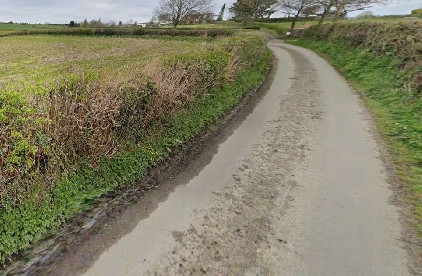
The chairman of Shropshire's main hospital trust says staff survey results make “depressing reading”, and he is worried he will see a repeat next year.
The NHS Staff Survey, compiled between September and December last year, placed the Shrewsbury and Telford Hospitals NHS Trust 34th out of 38 acute trust, and found staff engagement and safety culture were rated significantly below the national average.
Workforce director Victoria Rankin told the trust board that showing employees more evidence that their feedback was listened to and acted on would improve morale.
Medical director Dr Edwin Borman said there was “clearly a discrepancy” between reality and perceptions, but agreed engagement had so far been inadequate.
Ms Rankin said the results of the survey, which was completed by 2,500 SaTH staff, “don’t represent the employment experience we want for our people”.
She said the data is grouped into 10 theme areas, and SaTH’s results had deteriorated in most areas.
“We’ve run some staff focus groups to really get underneath how staff are feeling,” Ms Rankin said.
“We want to concentrate on staff engagement. All the evidence tells us, if we get that right, the impact it has on staff engagement is tremendous.
She said in previous years it has sometimes been met with “long radio silence”.
Ben Reid, who took over as SaTH chairman in January 2018, said: “I have to say I heard a similar report this time last year.
“It’s a negative, to me, to see we could roll backwards.
“What significantly is going to change this year so we don’t go through a similar situation? What will make a real difference next year?
“It’s really depressing reading, the way some of the people who work for us view us.”
Ms Rankin said “closing the loop, and showing what we are doing with the feedback” was key.
“I think there is more we need to do, and, for me, that is not just about our newsletters – although they play a key part. It’s about making time to make sure the conversation happens.”
She said a three-times-yearly “pulse report” between the national NHS Staff Surveys would keep the trust in touch with the views of the workforce.
Medical director Edwin Borman said: “There clearly is a discrepancy between how people feel and objective reality.
“When we look logically and we balance it against a bunch of metrics, the care we provide for patients is remarkably safe compared to a lot of trusts.
“It’s very clear that, to date, the level of engagement that we’ve managed hasn’t resolved that adequately.
“All of us are committed to changing that.”
Ms Rankin added that the culture and staffing at the trust were linked.
“Improving the culture will help the staffing levels and improving staffing levels will improve the culture,” she said.
“It’s a circle.”

 Revealed: The main roads in Herefordshire prioritised for repairs
Revealed: The main roads in Herefordshire prioritised for repairs
 Villagers fustrated over lack of road repairs
Villagers fustrated over lack of road repairs
 New Food and Drink group launched at online event
New Food and Drink group launched at online event
